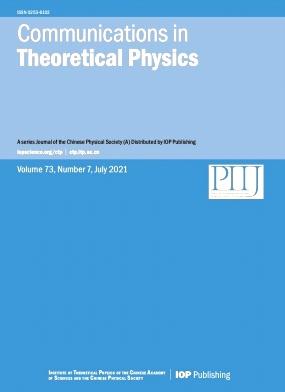实现求解线性方程的高效变分量子算法
IF 2.9
3区 物理与天体物理
Q2 PHYSICS, MULTIDISCIPLINARY
引用次数: 0
摘要
变分量子算法是最有潜力实现量子优势的方法,在噪声中等规模量子计算时代得到广泛应用。本研究提出了一种先进的变分混合算法(EVQLSE),利用量子和经典计算范式来解决线性方程组的求解问题。首先,从两个量子态之间的相似性度量中汲取灵感,提出了一种创新的损失函数。与变分量子线性求解器相比,该函数的计算复杂度有了大幅提高。随后,针对小规模线性系统提出了一种专门的参数化量子电路结构,该结构具有强大的表达能力。通过严格的数值分析,利用变分量子回归算法对该电路结构的表达能力进行了定量评估,结果表明,与其他电路结构相比,该电路结构的得分最高。此外,系统规模的扩大伴随着参数数量的增加,给算法的训练过程带来了相当大的压力。为了应对这一挑战,我们引入了一种称为量子参数共享的优化策略,在严格遵守精度标准的同时,有效地减少了参数数量。最后,EVQLSE 在 IBM 提供的量子计算平台上成功实现,用于解决维度为 220 的大规模问题。本文章由计算机程序翻译,如有差异,请以英文原文为准。
Towards an efficient variational quantum algorithm for solving linear equations
Variational quantum algorithms are promising methods with the greatest potential to achieve quantum advantage, widely employed in the era of noisy intermediate-scale quantum computing. This study presents an advanced variational hybrid algorithm (EVQLSE) that leverages both quantum and classical computing paradigms to address the solution of linear equation systems. Initially, an innovative loss function is proposed, drawing inspiration from the similarity measure between two quantum states. This function exhibits a substantial improvement in computational complexity when benchmarked against the variational quantum linear solver. Subsequently, a specialized parameterized quantum circuit structure is presented for small-scale linear systems, which exhibits powerful expressive capabilities. Through rigorous numerical analysis, the expressiveness of this circuit structure is quantitatively assessed using a variational quantum regression algorithm, and it obtained the best score compared to the others. Moreover, the expansion in system size is accompanied by an increase in the number of parameters, placing considerable strain on the training process for the algorithm. To address this challenge, an optimization strategy known as quantum parameter sharing is introduced, which proficiently minimizes parameter volume while adhering to exacting precision standards. Finally, EVQLSE is successfully implemented on a quantum computing platform provided by IBM for the resolution of large-scale problems characterized by a dimensionality of 220.
求助全文
通过发布文献求助,成功后即可免费获取论文全文。
去求助
来源期刊
CiteScore
5.20
自引率
3.20%
发文量
6110
审稿时长
4.2 months
期刊介绍:
Communications in Theoretical Physics is devoted to reporting important new developments in the area of theoretical physics. Papers cover the fields of:
mathematical physics
quantum physics and quantum information
particle physics and quantum field theory
nuclear physics
gravitation theory, astrophysics and cosmology
atomic, molecular, optics (AMO) and plasma physics, chemical physics
statistical physics, soft matter and biophysics
condensed matter theory
others
Certain new interdisciplinary subjects are also incorporated.

 求助内容:
求助内容: 应助结果提醒方式:
应助结果提醒方式:


